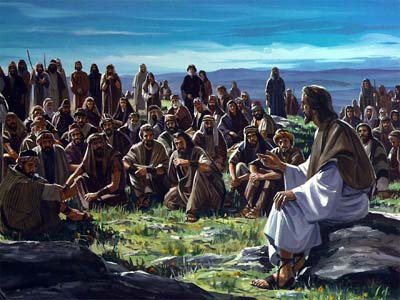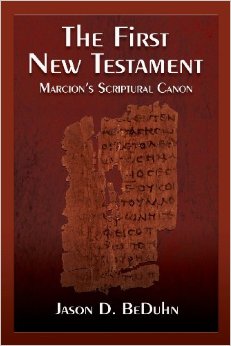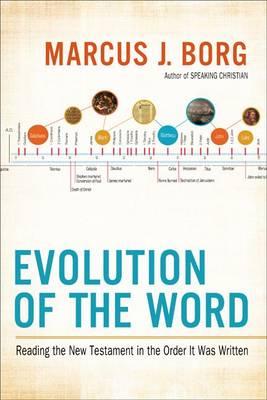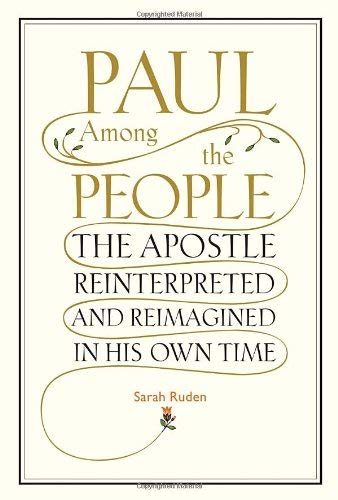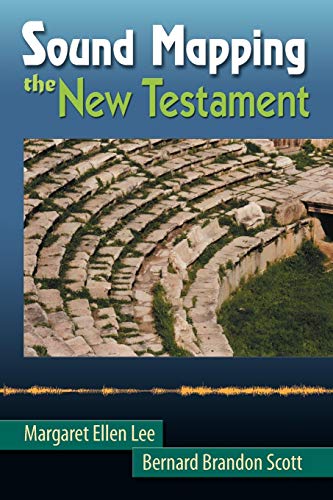Courage does not mean fearlessness and is a quality that exists within all beings and can be accessed at any time. We need only to turn inward to face life’s challenges with the courage that is already ours. Feeling anxious or fearful of new outward circumstances is normal for most people, but finding the courage to face those circumstances means recognizing that our divine nature is perfectly equipped and we have the inner resources to handle challenges.
Westar Institute/Polebridge Press
In this radical reading of Paul’s famous claim that God stands with the nobodies of the world, Caputo explores the idea that the real interest of theology is not God—especially not God as supreme being.
(Excerpt from Theology From Exile Vol. III, The Year of Mark by Sea Raven, D.Min.) Acts 10:34-43; Isaiah 25:6-9; Psalm 118:14-24; 1 Corinthians
The Greek word for “faith” in the New Testament is pistis, which occurs 243 times. As a noun, pistis is used as a technical term for “forensic evidence.” In other words, faith is not blind; we must investigate to establish the facts. I agree with retired Episcopal bishop, John Shelby Spong, who writes, “My problem has never been my faith. It has always been the literal way that human beings have chosen to articulate that faith.” To many Christians, faith means believing highly suspect claims, which is a problem for me. Thinking isn’t a sin. God created our minds and I’m certain that we were intended to use them.
I think Christian missionaries should live among the people exhibiting their Christianity in their daily lives. If the people see something in their lives that is missing in their own lives they will ask about it, which gives the missionary permission to tell them about their faith.
For Christians grace is God’s gift of pardon. According to William Barclay the Greek word for grace was originally a military term. When an emperor came to the throne or celebrated a birthday, he would give his troops a donatirim (donation), which was a free gift that they had not earned; it was given out of the goodness of the emperor’s heart. This idea was picked up by the Christian scripture writers when they wrote about the grace of God. Grace is something that is unearned and undeserved – unmerited pardon.
When it comes to the existence of the devil, people normally have one of two reactions: they dismiss the devil and scoff at the idea that there is such an entity, or they exalt the devil, and attribute far more to him (or it) than is deserved. In a recent Gallup poll, 70% of Americans believe in the devil. Half of those surveyed believe that he (this evil force is most often referred to in masculine terms) is a personal force, while the other half believes he is an impersonal force. Let us see what the Bible says about Satan, the devil and the evil one.
Bonhoeffer believed that in the future a religionless Christianity—stripped of its religious garments—would be limited to two things: prayer and action.3 He believed that through these two acts Christians would learn to see the world from a new perspective, with the eyes of those at the bottom of society—the people that Matthew called “the least of these.” For Bonhoeffer, prayer—especially intercessory prayer—becomes important because it creates a powerful sense of empathy and solidarity with the people one brings before God. This, in turn, motivates one to engage in “righteous” action—the seeking of justice in human society.
Easter calls attention to the traditional, fundamental “beliefs” associated with the Christian religion – if only for a day. The secular world pays little attention to the nuances of Christian “faith” in a post-Christian world. Easter is a liturgical season that lasts for seven weeks. In Christian tradition, the time between the resurrection of Jesus and his “ascension” into the sky (Pentecost) replaces the time between the Jewish Feast of the Passover and the giving of the law to Moses on Mt. Sinai. Not only do most Christians concentrate on the resurrection story – often literally. Editorial writers for supposedly sophisticated secular media seem to feel obligated to attempt to find meaning in the traditional religious legend of a dead man walking out of his tomb. But “faith” does not mean “belief.” “Faith” means “trust.” “Faith” further means “confidence.”
We need to subject the resurrection stories of the New Testament to the same critical analysis as we did the crucifixion. So let us examine Paul’s writings and the gospels in an attempt to discover what the event we call Easter really was.
One of the most reliable facts concerning Jesus is that he was crucified during the reign and by the action of the Roman procurator, Pontius Pilate, who served by appointment of the Caesar from 26-36 CE. The Roman senator and historian Tacitus referred to Jesus’ execution by Pilate in his Annals, which was written circa 116 CE. Beyond that, however, there is not much historical evidence.
We all belong. We are each one a part of the Temple of God. Paul wants the church at Corinth to recognize that they all belong to one another, and that it is foolish to divide and polarize around certain leaders. Paul argues that there is no place in the church for petty jealousies and pride.
Celebrate our life together, giving birth in many ways; Father-Mother Love is with us, leading to a better day. Equal partners ‘round the table, family groups of every kind show us how to nurture kindness, new creation’s joy to find.
The church sign can be easily read by anyone driving by: “You can’t be a devoted follower of Jesus unless you are part of a local church.” Does the church that posts this sign not trust the people with Jesus’s message? What is the meaning of “incarnation” if not “embodiment” by individual persons of the spirit of the Christ? Is the “Body of Christ” for members only? The Apostle Paul created the metaphor of the “Body of Christ” as the community of followers. In 1 Corinthians 10:16-17, he explains the meaning of the ritually-shared meal: “The cup of God’s gracious benefits that we consecrate means that we are involved in the blood of the Anointed, doesn’t it? The bread that we break means that we are involved in the body of the Anointed, doesn’t it? That there is one loaf means that we who are many constitute one body, because we all partake of the one loaf.” In Romans 12:5 he says, “Just as each of us has one body with many parts that do not all have the same function, so although there are many of us, we are the Anointed’s body, interrelated with one another.”
Sermon by Chuck Queen, Feb. 9, 2014
In contemporary speech the word spiritual is more associated with personal or private experience, while the word religious is usually connected to communal, institutional, and organizational religious life. Those who identify themselves as spiritual but not religious reject traditional organized religion as the sole or the most valuable means of advancing one’s spiritual growth.
When Paul talks about the wisdom of the world he is not talking about Greek philosophical wisdom. The wisdom of the world that Paul has particularly in mind is the wisdom that crucified Jesus. The wisdom of the world Paul is referring to is the kind of wisdom expressed in domination systems. In our context it would be powerful governments and corporations who wield enormous power and wealth to shape society in view of their own self-interests.
The earliest version of the New Testament, now in English for the first time! History preserves the name of the person responsible for the first New Testament, the circumstances surrounding his work, and even the date he decided to build a textual foundation for his fledgling Christian community. So why do so few people know about him? Jason BeDuhn introduces Marcion, reconstructs his text, and explores his impact on the study of Luke-Acts, the two-source theory, and the Q hypothesis.
The sermon is based on a performance of the lectionary reading from Galatians and other central texts that tell the story of Paul in his own words: Galatians 1:1-17; 2Corinthians 12:1-12; and 1Cornthians 15:1-11 with short quotes from other letters as well. As this Early Christian practice was supposed to be unscripted and is mostly based on Paul's own words, there is no written version of the sermon on the website. You are invited to watch the video recording of the performance.
The New Testament in the Order the Books Were Written
the full-text of the New Testament—and one of the only Bibles organized in chronological order and including explanatory annotations that give readers a more informed understanding of the Scripture
I try to carry God into all I do including parenting. This does not translate into threats or punishment about God watching but into teaching about kindness and love.
Paul insists, "It is for freedom that Christ has set us free." Yes, freedom. Paul was the Apostle of human freedom.
2) The Hebrew scriptures, or the Old Testament, represent a religious tradition that is independent of the later Christian faith. The Hebrew scriptures aren't about Jesus, although the Christian scriptures include many references to the Hebrew scriptures. To honor the fundamental differences between the two sets of scriptures doubles the spiritual significance of the entire Bible.
Jesus said part of the reason one has to pour New Wine into new wine skins was to preserve the old wine and old wine skins.
Pentecost is perhaps the first festival appropriated from an ancient tradition to serve the purposes of the new Christian Way.
Regarding Heaven and Hell; Ah, but a man's reach should exceed his grasp, or what's a heaven for? - Robert Browning. An evangelical pastor of a mega-church, Rob Bell, creates a stir when he writes a little book, suggesting when it comes to a place called heaven, there's room for everyone. What the hell?
Paul’s interpretation of who Jesus was probably never crossed paths with the later gospel writers. Or, if it did, most of his theology was misunderstood.
Jesus is seriously dead. None of the rest of it makes any sense otherwise.
Sea Raven's inspired historical-critical reading of Jesus' thought welcomes us into the past and present struggle to bring about a divine commonwealth.
In Paul Among the People, Sarah Ruden explores the meanings of his words and shows how they might have affected readers in his own time and culture. She describes as well how his writings represented the new church as an alternative to old ways of thinking, feeling, and living.
In the Hellenistic world, writings were read aloud, heard and remembered. But modern exegesis assumes a silent text. The disjuncture between ancient...




